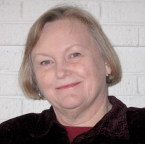 Stephanie Ferrera, MSW first encountered Bowen Family Systems Theory during her graduate studies at the Jane Addams School of Social Work in 1975. Impressed with the way this theory understood families and human relationships in general, she pursued her interest by studying with Dr. Bowen in the Post-Graduate Training Program in Family Systems Theory at Georgetown University Family Center from 1978 to 1980. Since then, she has continued to deepen her knowledge of family emotional process through research, writing, teaching, and clinical practice. She has published book chapters and journal articles, and is on the editorial board of Family Systems, the journal of The Bowen Center for the Study of the Family.
Stephanie Ferrera, MSW first encountered Bowen Family Systems Theory during her graduate studies at the Jane Addams School of Social Work in 1975. Impressed with the way this theory understood families and human relationships in general, she pursued her interest by studying with Dr. Bowen in the Post-Graduate Training Program in Family Systems Theory at Georgetown University Family Center from 1978 to 1980. Since then, she has continued to deepen her knowledge of family emotional process through research, writing, teaching, and clinical practice. She has published book chapters and journal articles, and is on the editorial board of Family Systems, the journal of The Bowen Center for the Study of the Family.
Stephanie became a partner in Center for Family Consultation in 1980. She is in private practice of individual, marital, and family therapy in Oak Park, and is a mother of six, grandmother of seven.
Contact Information
You may contact Stephanie Ferrera via email using the form below.
Stephanie Ferrera Publications
Ferrera, S. J. (In press). The evolution of helping: from altruism to empathy to differentiation of self. In P. Titelman (Ed.) Differentiation of Self: Bowen Family Systems Theory Perspectives. New York, NY: Routledge
————- (2012) Naturalistic spirituality: a personal reflection. Family Systems Forum, Fall, 14 (3), 8-9. Center for the Study of Natural Systems and the Family.
————- (2011). Collective intelligence and differentiation of self. Family Systems Forum, Summer, 13(2),3. Center for the Study of Natural Systems and the Family.
————- (2011). Emotional neutrality and the quest for peace: Northern Ireland as a case study. Family Systems, 8(2), 101-124. Georgetown Family Center.
————- (2008). Thoughts on differentiation of self in science. Family Systems Forum, Spring, 10(2), 1. Center for the Study of Natural Systems and the Family.
————- (2003). The continuum of emotional cutoff in divorce. In P. Titelman (Ed.) Emotional Cutoff. (289-313). Binghamton, New York: Haworth Press, 289-313.
————- (2003). Room of one’s own: Territory and differentiation. Family Systems Forum, Winter, 5(4), 2. Center for the Study of Natural Systems and the Family.
————- (2003). Thoughts on citizenship and differentiation. Family Systems Forum, Spring, 5(1), 3. Center for the Study of Natural Systems and the Family.
————- (2001). Women and leadership (men also welcome to apply). Family Systems Forum, Fall, 3(3), 5. Center for the Study of Natural Systems and the Family.
————- (2000). You say you want equality? Family Systems Forum, Spring, 2(1), 4. Center for the Study of Natural Systems and the Family.
————- (1999). What is help: a theoretical and personal perspective. Family Systems, 5(1), 44-55. Georgetown Family Center.
————- (1998). Bridging emotional cutoff from a former spouse. In P. Titelman (Ed.) Clinical Applications of Bowen Family Systems Theory (381-413). Binghamton, New York: Haworth Press.
————- (1995). Morality, neutrality, and differentiation of self. Family Systems, 2(1), 48 61. Georgetown Family Center.
————- (1994). Neutrality in a violent world. Family Systems, 1(1), 44-56. Georgetown Family Center.
————- (1989) The neutrality of nature and the nature of neutrality. CFC Review, 1(1), 3-5. Center for Family Consultation.
————- (1989). The workplace as an emotional system. CFC Review, 1(1), 9-10. Center for Family Consultation.
————- (1986). A climate of neutrality. The Family, 13(2), 3-7. Center for Family Learning.
————- (1983). Defining a no-self: A reverse approach to differentiation. The Family, 11(1), 18- 22. Center for Family Learning and Georgetown University Family Center.

